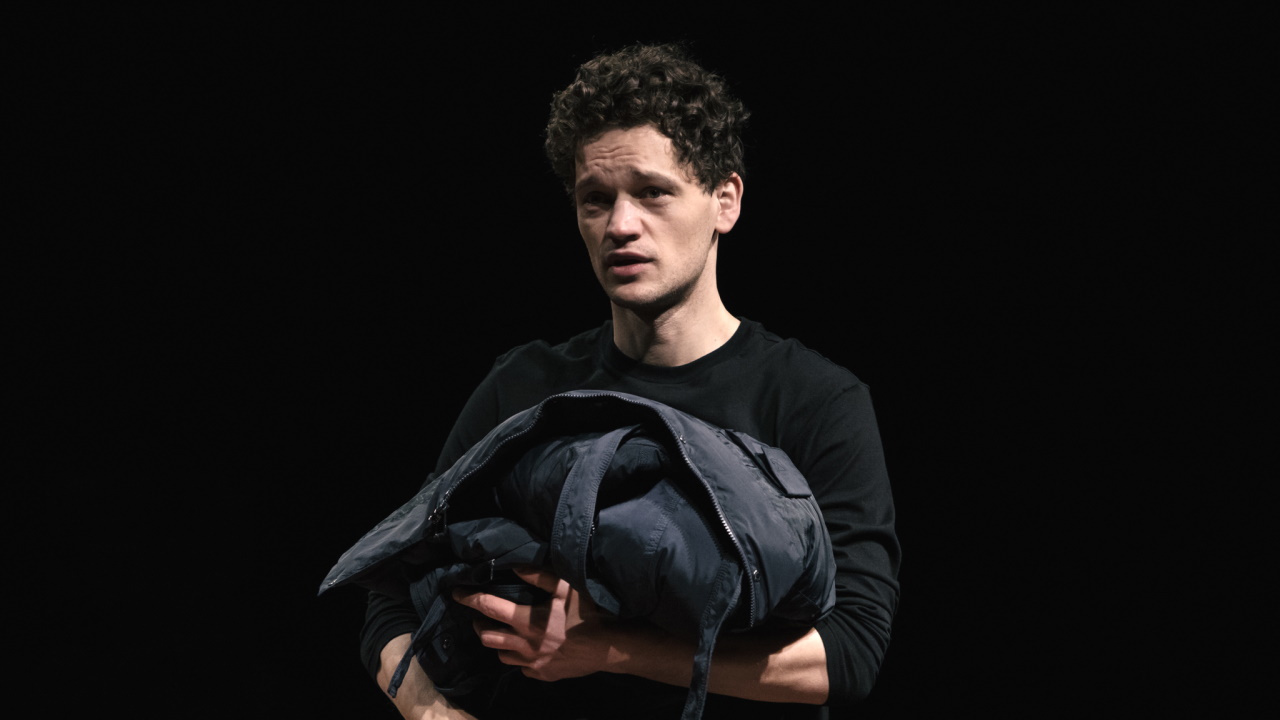There are a million of them – good things that are worth living for. The protagonist began to make this list as a child, when his mother made his first suicide attempt. Later, he himself needed this list. The mono-performance “1,000,000 Good Things” of the Liepāja Theater, which has been ready for some time, has finally reached the audience.
“1,000,000 good things”
A story about the search for joy
Duncan McMillan (in collaboration with Johnny Donach, first actor)
Director – Dmitry Petrenko
The game – Edgars Ozolins or Gatis Maliks
Light Artist – Dainars Albužis
Translated from English Andris Kuprišs
–
–
Rehearsals for this production of Duncan McMillan’s “Every Brilliant Thing” began in January. In the spring, director Dmitrijs Petrenko, talking about the finished mono-show, which was decided to call “1,000,000 good things” in Liepaja, said: “It is not quite a mono-show, story. It is a show about life, about how to find joy in life. And in principle, the show is about an adult who has gone through various difficulties and is trying to deal with depression. Today is a very topical topic, especially in a pandemic. ”
The show is played alternately by two actors – Edgars Ozoliņš and Gatis Maliks. I watched a show starring Ozolins.
Liepāja Theater Small Hall in the concert hall “Lielais dzintars”. The chairs for the audience stand in a circle, creating an empty space in the middle. The first line reads “actor” on the back of one chair. Edgar welcomes each spectator and presents a leaflet with several words. What is written on these leaflets? About it a little later.
The seven-year-old boy begins to compile a list of good things after his mother makes the first suicide attempt.
Until then, he had only once died – when he had to put his favorite dog to sleep, who had become too old. He later forgets the list for ten years, until his mother’s second attempt to leave life. This is followed by university, meeting his future wife, wedding, divorce, the third – successful – mother’s suicide attempt, again a list, which the protagonist adds to a million… At this time he himself is already depressed, so with a list that did not help his mother, he tries “Pull out” yourself. And in this show he tells not about his life, but about his psychological problems, which he can no longer cope with.
Why, then, does Edgar distribute leaflets to viewers? When talking about the list, he names the number and the viewer reads aloud what it is about the good thing that can bring joy… I hit 516. Something to win. Well, that’s one of the points on the same list of good things. Moreover, not the most interesting. But the list starts with ice cream. It has a lot of different things – from water battles and opportunities to stay awake longer and watch TV to good books, athletes, coffee and much more.
This does not end the “pulling” of the audience into the message. The actor “appoints” the audience as a veterinarian, father, teacher psychologist, lecturer, young woman-bride-wife… Tells them the necessary text. It could not be called a show, but hepeningu, because a lot depends not only on Edgar, but also on the viewers he chooses.
It should be noted that the young women, who become bridesmaids and teachers during the performance, are simply surprised by psychologists. The thought even strikes in my mind whether they are really just spectators. Yes, it really is.
Edgars Ozoliņš pronounces and survives for forty years in a touching and painful way.
But to bow down – and that’s fair – he also “pulls out” all the spectators who played for him in this group psychotherapy session.
After the show, we left with theater scientist and critic Edith Tisheiser. She asked – do you know that this is the third production of this play in Latvia? I had to admit that I only know about the show Mikhail Chekhov at the Riga Russian Theater.
“It simply came to our notice then production in Valmiera. It was the first show I got to when the first strict restrictions were lifted. And it was, of course, a completely different show. We really felt like “guests at this little wedding.” And I don’t want to compare in any way! However, I find it very interesting to see how this play, in which everything is already planned – what and how the hero says, at what point he involves the audience – still turns out to be something else. Yes, it depends on the actor, it is a very personal production, and it depends very much on the people who have come to this show. Here, ours has become more funny. The show was more than other people, those whom the protagonist met and who somehow influenced him. Such performances in the small hall either unite the spectators very much or, on the contrary, separate them, and everyone isolates themselves, they say, do not touch me. It is very interesting how an actor can set the audience in relation to himself every time, how he “manipulates” the audience. Of course, it depends on the charisma of the actor. And I think Edgars Ozoliņš is, of course, very good, ”said Edīte Tišheizere.
The next day, “1,000,000 good things” was played by Gatis Maliks, a completely different actor. And, of course, it was a completely different show. Although the main message remained the same – there are many, albeit small, things and moments in life that are worth living. It is not for nothing that the show has a subtitle: “The Story of the Search for Joy”.
–
Highlight text and press Ctrl+Enterto send the text to be edited!
Highlight text and press Report a bug buttons to send the text to be edited!
–
–


